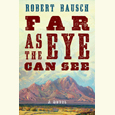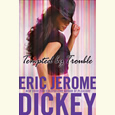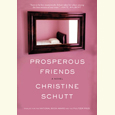Unapologetically Unafraid
Darius Stewart’s lyrical memoir voices the complexities of being Black, gay, and Southern
Be Not Afraid of My Body: A Lyrical Memoir, the second book by Knoxville native Darius Stewart, takes readers on a journey of self-discovery as it unearths the complexities of his childhood and investigates life after addiction and an HIV diagnosis. Stewart’s experiences serve as a multigenerational mirror and window for life as a Black gay man in the South.
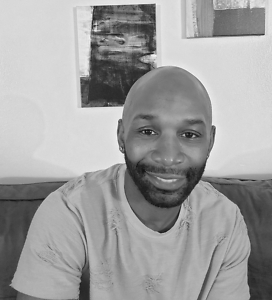 Stewart’s debut poetry collection, Intimacies in Borrowed Light, was published in 2022, and his essays and poetry have appeared in a plethora of literary magazines, including The Brooklyn Review, Callaloo, Cimarron Review, The Potomac Review, Salamander, storySouth, and others. Stewart is currently a Lulu “Merle” Johnson Doctoral Fellow in English at the University of Iowa. He answered questions from Chapter 16 by email.
Stewart’s debut poetry collection, Intimacies in Borrowed Light, was published in 2022, and his essays and poetry have appeared in a plethora of literary magazines, including The Brooklyn Review, Callaloo, Cimarron Review, The Potomac Review, Salamander, storySouth, and others. Stewart is currently a Lulu “Merle” Johnson Doctoral Fellow in English at the University of Iowa. He answered questions from Chapter 16 by email.
Chapter 16: After experiencing several traumatic health and personal challenges, you really poured those experiences into healing on the page. What advice do you have for authors who might be struggling to find their voice amidst navigating life’s obstacles?
Darius Stewart: Navigating life’s obstacles is already challenging enough, but as a writer, finding your voice amidst the turmoil to express it all can feel especially daunting. But it’s precisely within these experiences that a unique voice resides, or at least one that can be cultivated. It may take years of sifting through the messiness, unpacking the emotional baggage that makes for great material once it’s been properly ironed out, before a writer can identify what their voice is. But once you know it, you know it because it will feel honest, authentic, but, most importantly, when you say to yourself This is the only way I know to write this, you will know that you’ve found it.
At the end of the day, if you’re like me and faced with multiple traumatic experiences that were certainly self-imposed, embrace the messiness that caused it all, and put it down. You can tidy it all up later. And as you’re figuring out how to do it, be patient and kind to yourself in the meantime. Enjoy the journey that, if writing is your passion, will consist of a lifetime of experimenting, making mistakes, and, the best part, seeing all the wonderful ways you continue to evolve as a writer.
Chapter 16: When determining the best voice for this project, you said that you were deeply drawn to the romanticism of Walt Whitman and Jack Gilbert, as well as the confessionalism of Essex Hemphill and Sharon Olds. How vital was it to tap into these emotions for the writing of Be Not Afraid of My Body?
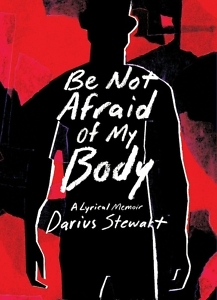 Stewart: These poets were essential to my vision for the memoir as it navigates the complexities of desire, vulnerability, and the way the body responds to each. The book’s title is taken from Whitman’s celebration of the body, and I see Hemphill’s work as a natural descendant of Whitman’s, although it’s Hemphill’s portrayal of a sex-positive, Black gay identity that inspired me to use his work to frame the book’s six sections. Olds’ sensual language, particularly her frank exploration of female sexuality, and Gilbert’s tender exploration of love and loss, profoundly inform the book’s emotional tenor.
Stewart: These poets were essential to my vision for the memoir as it navigates the complexities of desire, vulnerability, and the way the body responds to each. The book’s title is taken from Whitman’s celebration of the body, and I see Hemphill’s work as a natural descendant of Whitman’s, although it’s Hemphill’s portrayal of a sex-positive, Black gay identity that inspired me to use his work to frame the book’s six sections. Olds’ sensual language, particularly her frank exploration of female sexuality, and Gilbert’s tender exploration of love and loss, profoundly inform the book’s emotional tenor.
I was always very deliberate in how to incorporate their influences without imitating or over-relying on their styles. I found it infinitely more important — and pleasurable — to find in their work a sense of defiance against conventional ways of articulating difficult subjects. I needed their voices to better access my own if I was ever to create something artful and push me to see how far I could transgress the boundaries of conventional memoir.
Chapter 16: Can you explain the intention behind including white space throughout this book?
Stewart: White space serves a dual function in the lyric memoir. As a poetic technique, it allows meaning to emerge through juxtaposition, to represent the silence surrounding what is inexpressible. This invites readers to actively participate by contemplating both their personal response to the text and what the white space implies about our understanding of the narrator. Simultaneously, as a narrative device, white space manipulates the concept of lyric time by deviating from conventional temporal structures. It can be used to affect narrative pacing, to demonstrate how our memories tend to function, especially the limits — or even refusal — of memory to cooperate chronologically when we attempt to retrieve them. Often memories must be triggered, or else we wait for memories to materialize in flashes or fragments. Memories are not unlike the white space of a developing Polaroid picture.
Chapter 16: In the chapter, “Etymologies,” there is a focus on how words and language shape our very experiences. Do you think this technique can be applied in all instances of creative writing? Why or why not?
Stewart: I like to think that all writing, especially creative writing, inherently focuses on how language — and by extension words — shape experiences. When I wrote the essay that became the chapter “Etymologies,” I was struck by how “etymologies” — as a form of linguistic study — can delineate not only where words and language originate, but I realized that I could use “etymologies” symbolically to offer the initial glimpses into a narrator we will see evolve in nuanced ways over the course of the book. And since I was writing a memoir that deliberately deviates from traditional linear narrative, engaging with language in this way became the perfect technique for character development, thematic exploration, and plot progression — to the extent there is a “plot.”
And while this technique may not be applicable to every instance of creative writing, as it depends on the author’s intentions and the story’s specific needs, the example of “Etymologies” demonstrates how language can be used strategically to enhance both narrative and character depth.
Chapter 16: Be Not Afraid of My Body is a universal and timeless coming-of-age, self-discovery story. What does the next coming-of-age chapter look like for Darius Stewart?
Stewart: I appreciate how your question broadens the idea of “coming-of-age.” It reminds us that these moments of self-discovery and transition aren’t limited to the experiences of youth. We’re always evolving and reshaping our lives.
My next project certainly speaks to this. It’s a speculative memoir exploring infidelity and the ways pleasure and desire complicate monogamy within Black gay relationships. I’m still developing the particulars, but I’m eager to explore this familiar yet deeply personal and often traumatic experience. I hope to offer a fresh perspective on love and intimacy and the challenges we face in navigating long-term commitments.
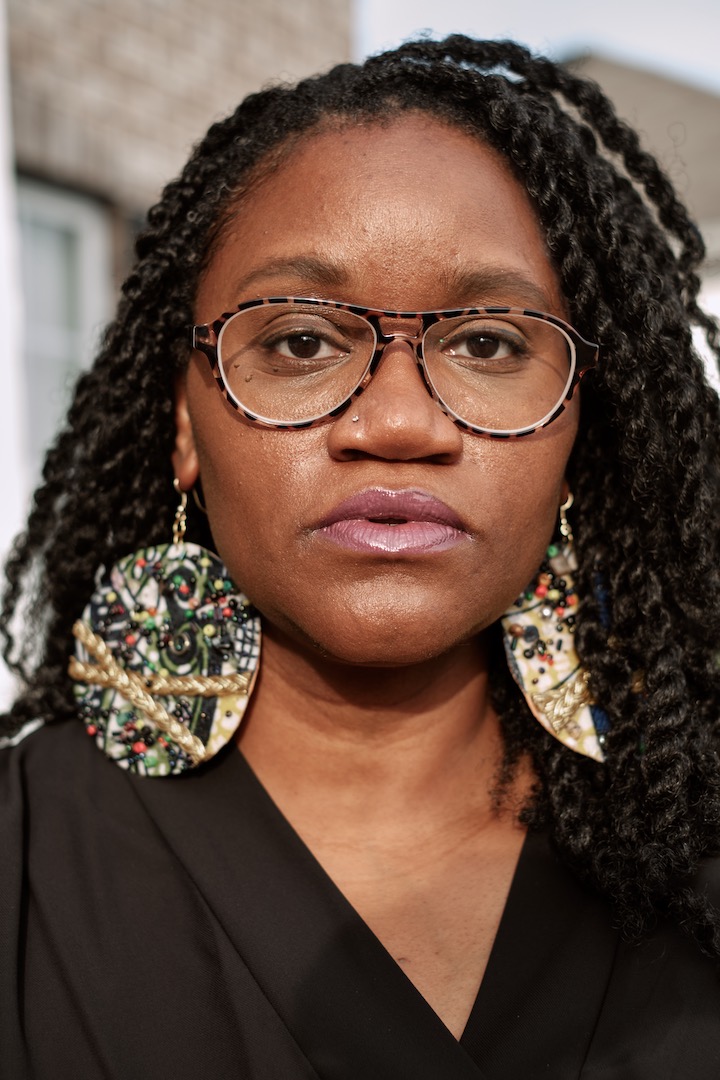
Tonya Abari is a Nashville-based independent journalist, author, essayist, book reviewer, and homeschooling parent. Her words have been published in the Nashville Scene, Essence, USA Today, Publishers Weekly, Parents, Good Housekeeping, PBS Kids, and many more. You can find her hanging out on Instagram @iamtabari.

